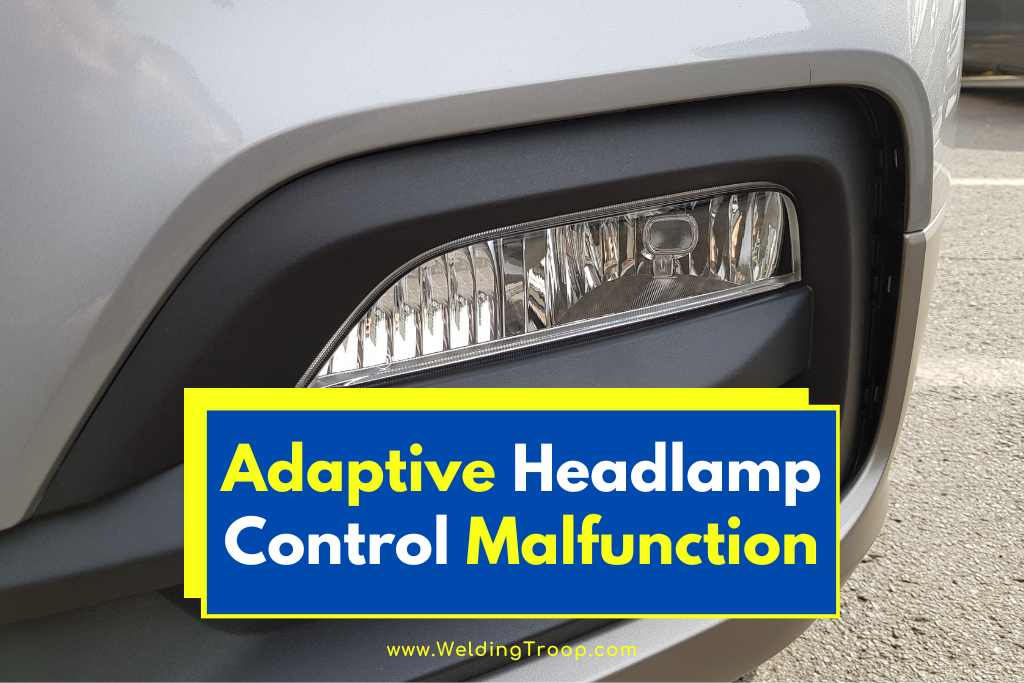BMW is known for its luxurious and high-performance vehicles, and one of the standout features that owners love is the adaptive headlights.
These headlights are designed to automatically adjust their intensity, range, and width to provide optimal illumination while driving at night. However, like any complex system, there can be issues that arise, leading to the malfunction of BMW’s adaptive headlights.
In this guide, we will explore the potential causes behind these malfunctions and provide insights on how to rectify them.
Table of Contents
Understanding Adaptive Headlights in BMW
Adaptive headlights, also referred to as dynamic or intelligent headlights, are a technological advancement in the automotive industry.
These headlights are designed to respond and adapt to changing driving conditions, providing enhanced visibility and safety on the road. The key features of BMW’s adaptive headlights include:
- Automatic Beam Adjustment: Adaptive headlights are equipped with sensors that detect the steering angle, speed, and other factors to adjust the beam direction and intensity accordingly. This ensures that the road ahead is properly illuminated, especially during turns and corners.
- Automatic High Beam Control: BMW’s adaptive headlights also incorporate automatic high beam control, which detects oncoming vehicles and switches to low beam to prevent blinding other drivers. This feature enhances safety during nighttime driving by providing optimal visibility without causing discomfort to other road users.
- Cornering Lights: Another feature of BMW’s adaptive headlights is the inclusion of cornering lights. These lights activate when the vehicle is turning, providing additional illumination in the direction of the turn and improving visibility around curves and corners.
Common Causes of Adaptive Headlight Malfunction
While BMW’s adaptive headlights are designed to function flawlessly, there are several potential causes that can lead to their malfunction.
Understanding these causes can help diagnose and address the issue effectively. Here are the common culprits behind adaptive headlight malfunctions in BMW vehicles:
1. Wiring Issues
Faulty wiring is a frequent cause of adaptive headlight malfunction. Over time, the wiring harness that connects the headlights to other components in the vehicle can wear out, leading to electrical faults.
Additionally, water infiltration into the wiring connections can cause corrosion, disrupting the flow of electricity and resulting in intermittent or complete failure of the adaptive headlights.
2. Control Module Failure
The control module, also known as the Body Control Module (BCM), plays a crucial role in the operation of BMW’s adaptive headlights. It acts as the central hub for various electronic components, including the adaptive headlight system.
If the control module malfunctions or fails, it can lead to erratic behavior of the headlights, such as incorrect illumination patterns or failure to respond to steering inputs.
3. Sensor Malfunction
Sensors are integral components of BMW’s adaptive headlight system, as they gather data on the vehicle’s speed, steering angle, and surrounding conditions to adjust the headlights accordingly.
If the sensors become misaligned, dirty, or damaged, they may provide inaccurate information, resulting in suboptimal performance of the adaptive headlights. Regular cleaning and calibration of the sensors are essential to maintain their functionality.
4. Bulb Issues
Like any light source, bulbs used in adaptive headlights have a limited lifespan. Over time, the bulbs may become dim or malfunction, leading to reduced illumination or complete failure of the adaptive headlight system. It is crucial to periodically inspect and replace the bulbs to ensure optimal performance.
Read also >> Right Low Beam Malfunction for BMW (Causes and Solutions)
Read also >> BMW Low Beam Malfunction: Here Is How To Fix
Identifying Adaptive Headlight Malfunction
Detecting adaptive headlight malfunction in your BMW is essential to address the issue promptly. Here are some common signs that indicate a malfunction in your adaptive headlights:
- Erratic Beam Direction: If you notice that the adaptive headlights do not adjust their direction while turning the steering wheel, it is a clear indication of malfunction. The headlights should follow the steering inputs to provide adequate illumination around corners.
- Inconsistent Beam Intensity: Adaptive headlights should automatically adjust their intensity based on driving conditions. If you observe fluctuations in beam intensity or inconsistent illumination, it may signify a malfunction in the adaptive headlight system.
- Failure to Switch to Low Beam: The automatic high beam control feature should detect oncoming vehicles and switch to low beam to avoid dazzling other drivers. If your adaptive headlights fail to switch to low beam when necessary, it indicates a malfunction in the system.
- Warning Messages or Error Codes: Modern BMW vehicles are equipped with sophisticated onboard diagnostic systems that can detect adaptive headlight malfunctions. If you receive warning messages or encounter error codes related to the adaptive headlight system, it is crucial to address the issue promptly.
Resolving Adaptive Headlight Malfunctions
When faced with adaptive headlight malfunctions in your BMW, it is recommended to seek professional assistance for proper diagnosis and repair.
Attempting DIY fixes without adequate knowledge and expertise can potentially cause further damage to the vehicle. Here are some steps to take to resolve adaptive headlight malfunctions:
1. Consult a Certified Technician
Contact a certified technician or visit an authorized BMW service center to have your adaptive headlights inspected and repaired.
Certified technicians have the necessary expertise and access to specialized diagnostic tools to identify the specific cause of the malfunction and perform the required repairs.
2. Repair or Replace Faulty Components
Based on the diagnosis, the technician will determine whether a repair or replacement is necessary for the faulty components. This could involve repairing wiring connections, replacing the control module, recalibrating sensors, or replacing bulbs as needed.
It is crucial to use genuine BMW parts or reputable aftermarket alternatives to ensure optimal performance and compatibility.
3. Regular Maintenance and Inspection
To prevent future adaptive headlight malfunctions, regular maintenance and inspection are essential. This includes periodic cleaning and calibration of sensors, checking the condition of wiring connections, and replacing bulbs according to the manufacturer’s recommendations.
Adhering to the recommended maintenance schedule will help maintain the functionality and longevity of the adaptive headlight system.
How To Fix BMW Adaptive Headlight Error Codes >> Check out the video below:
Conclusion
BMW’s adaptive headlights are innovative features that enhance visibility and safety while driving at night or in challenging conditions. However, malfunctions can occur due to various reasons, such as wiring issues, control module failure, sensor malfunction, or bulb problems.
Identifying the signs of adaptive headlight malfunction and seeking professional assistance are crucial steps to address the issue promptly and ensure the optimal functioning of your BMW’s adaptive headlights.
Regular maintenance and inspection will help prevent future malfunctions and prolong the lifespan of the adaptive headlight system.
Remember to consult certified technicians and use genuine or reputable aftermarket parts for repairs to maintain the integrity of your BMW’s adaptive headlight system.

